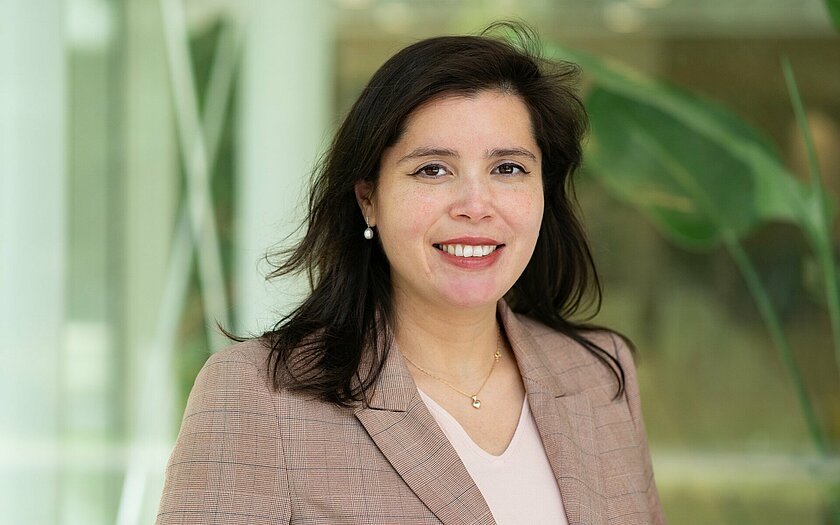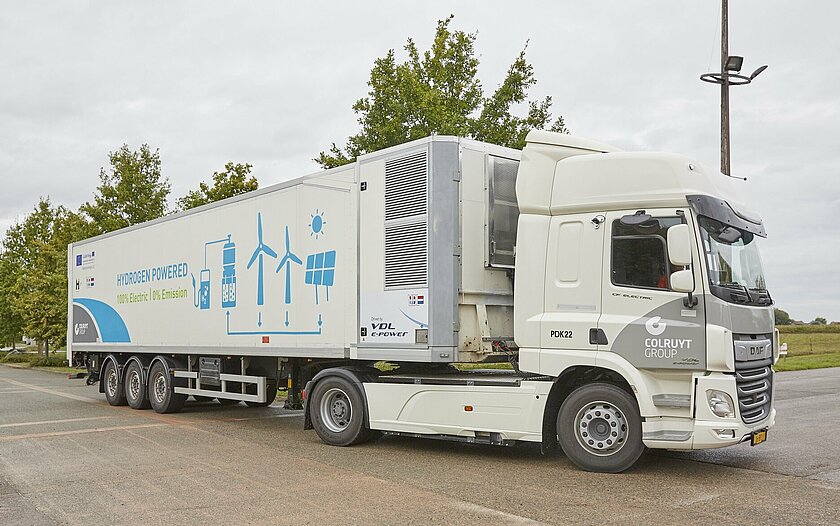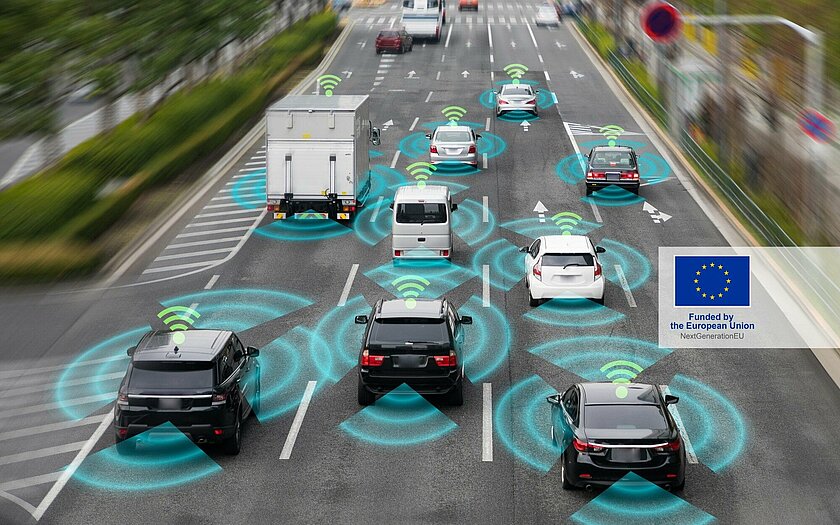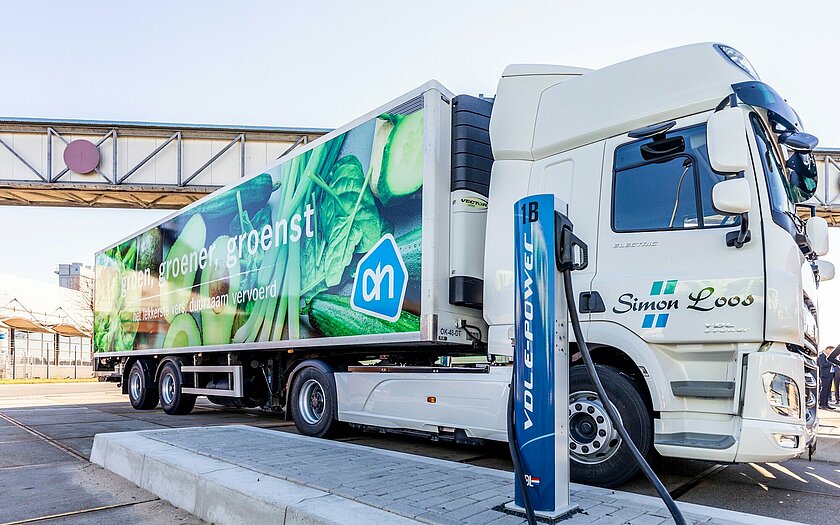
Charging Energy Hubs
There is less and less space available on the electricity grid to install and connect large-scale solar installations. At the same time, electric lorries demand high power from the electricity grid and an explosive increase in electric transport in the logistics sector is expected. The electricity grid can be used much more efficiently and effectively with smart system solutions.
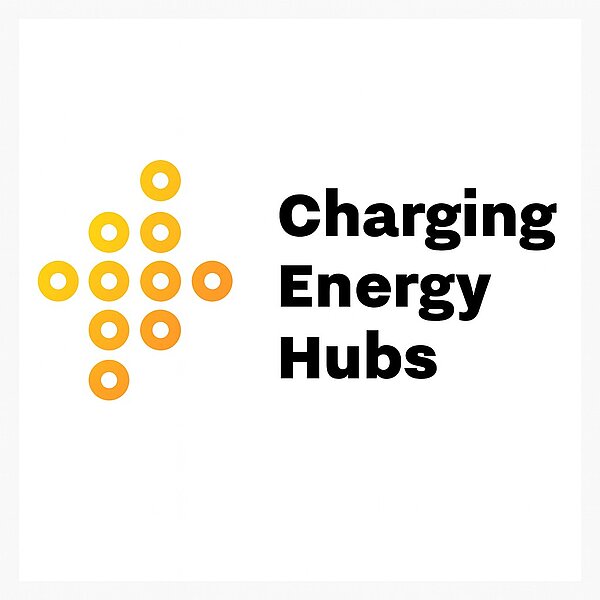
Flexibility through Charging Energy Hubs
The Charging Energy Hubs programme focuses on the development of decentralised energy systems in industrial areas. These smart hubs link energy generation, storage and consumption at the local level, thereby creating a source of flexibility. By optimising solar installations, battery systems, charging stations for electric trucks and consumers, an energy system is created that not only balances locally, but also contributes to congestion management and a robust energy infrastructure.
Visit the Charging Hubs websiteFrom innovation to practical application
The solutions are being tested and validated at three use-case locations. These locations utilise direct current technology, open standards, and innovative configurations. These pilots are designed for upscaling, so that they can also be applied internationally in the future. By collaborating across the entire value chain, from energy to automotive. A unique innovation approach is created that has a large-scale impact.
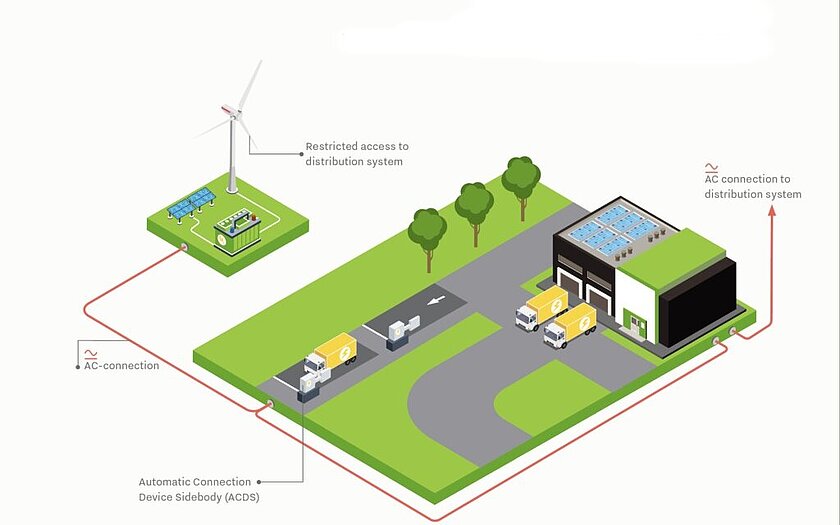
Private configuration: zero-emission urban logistics in Houten
This location focuses on the automatic charging of electric trucks (E-trucks) using an Automatic Connection Device Sidebody (ACDS). This is an automated device that attaches to the side of the truck.
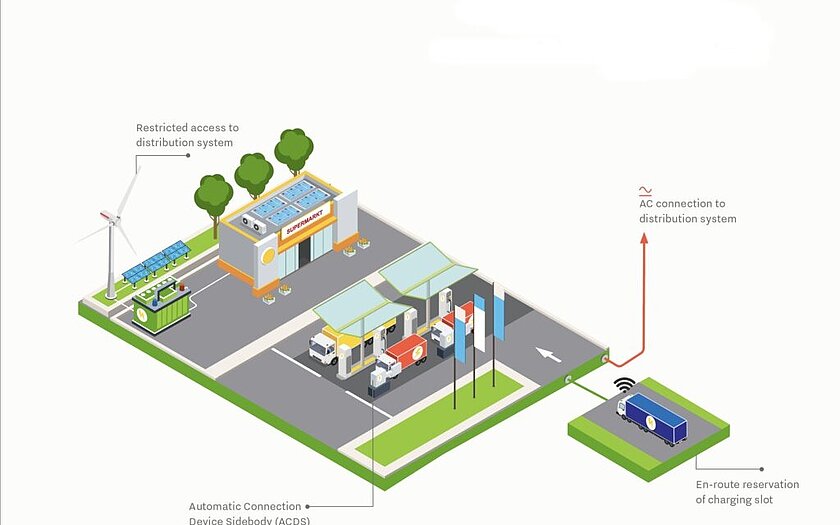
Public configuration: commercial freight traffic in Acht
Companies can take many steps to ensure they have sufficient power available. It starts with gaining insight, followed by implementing measures for energy saving, efficiency, generation, and storage. Read all about it in the guide.
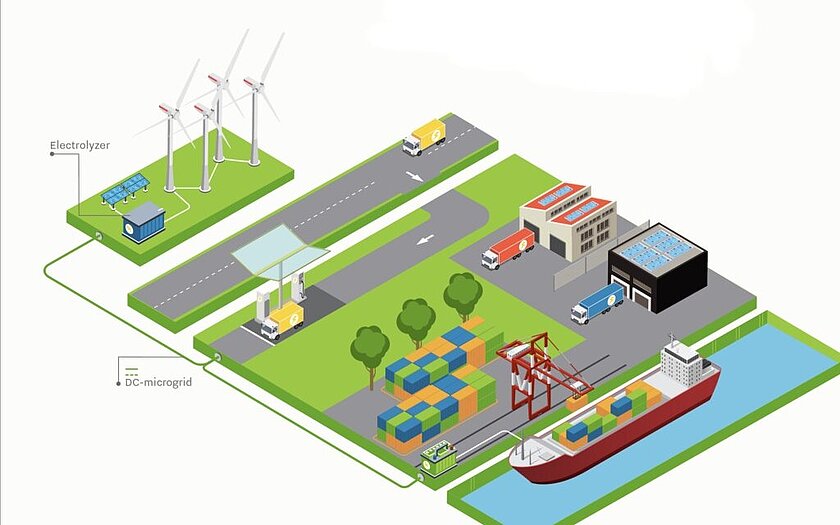
Private-public configuration: industrial sites in Veghel
At this location, experiments are being conducted with a smart group contract and the implementation of a DC microgrid. A smart system is being tested here that optimises the use of available power across multiple companies.
Organizational structure


Participants Charging Energy Hubs
The 27 organisations participating in this project are: AME, DAF, DAMEN, DC Systems, DENS, Dynniq, FIER, Fontys, HAN, Siemens, Fluidwell, KEMA, Maxem, NKL, Renewable Energy Factory (REF), Rocsys, Scholt Energy, Shell, Stichting ElaadNL, Sycada, TNO, TSN Groen, Eindhoven University of Technology, Van Berkel Logistics, Van Kessel, Zero Emissions Services (ZES). Project coordination is supported by Brainport Development and RAI Automotive Industry NL.




